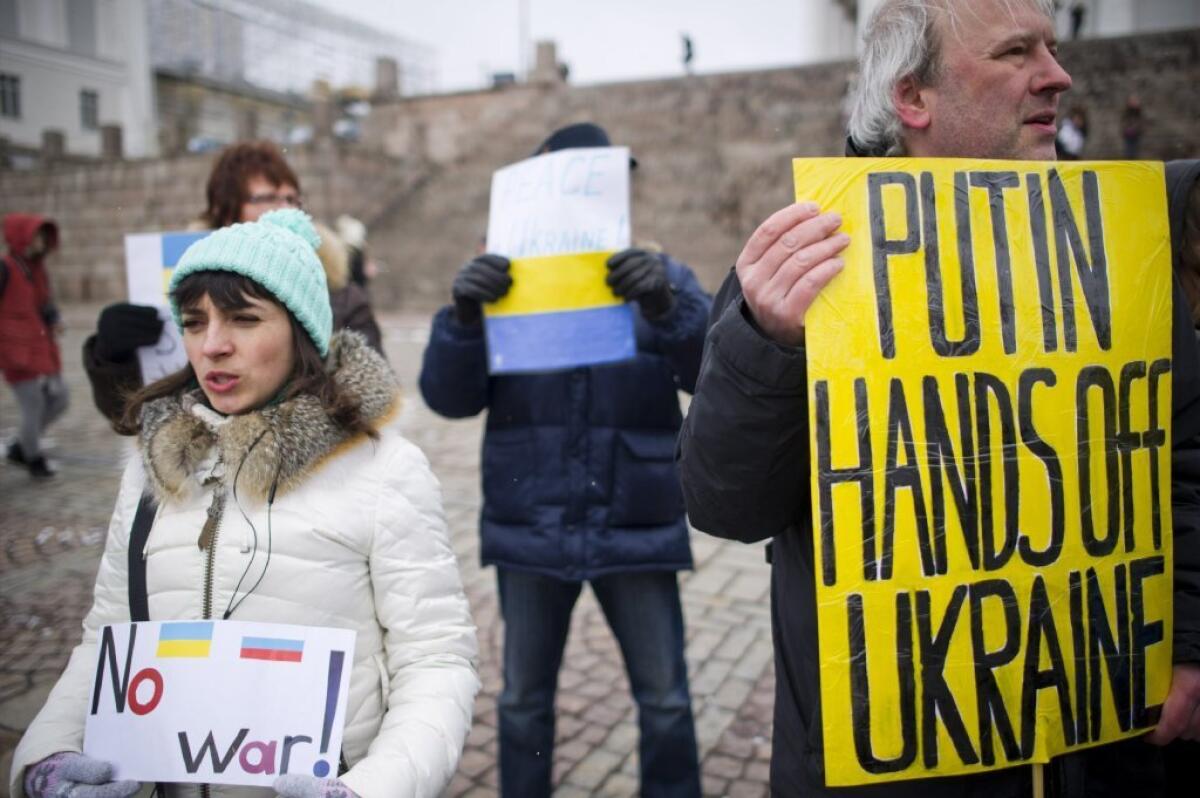Letters: Russia’s long reach

- Share via
Re “Threat from within,” Opinion, March 13
While Robert English has impressive credentials as director of USC’s School of International Relations, I question his view that the woes of the Ukrainians can be laid largely at the feet of the “neofascists” and American politicians trying to make points.
He fails to explain why Russian President Vladimir Putin has surrounded himself with ex-KGB people in an effort to consolidate power, why he jails or otherwise persecutes political opponents, or why he demands that the Russian oligarchs bring all their wealth back inside Russia or risk losing it.
These are not the moves of a misunderstood leader, but rather the well-laid plans of an aspiring despot. Ignore him, underestimate him, pacify or make excuses for him at the peril of all of us, Ukraine and Eastern Europe first.
George Parmer
Long Beach
To understand Ukraine’s complicated history, you have to know that it was last a fully independent country during the Middle Ages. It fell apart in the 13th century after a Mongol invasion. Later, Ukraine came under Polish domination.
Ukraine broke free from Poland during the 17th century and signed a pact with Russia in 1654 to protect itself from Poland. It soon found itself a province of the Russian Empire and later a republic of the Soviet Union. Many Ukrainians sided with Germany during its occupation in World War II because that was their only hope of independence from Russian domination.
The nationalist Svoboda party is attempting to recreate a de-Russified independent Ukraine. But it is too late, as most of eastern Ukraine is largely Russified. Russia has now basically taken Crimea and may soon target eastern Ukraine and more to reestablish its lost empire.
Roman Nykolyshyn
Pasadena
There is a lot that has been swept under the historical rug in the current crisis in Ukraine.
Much of the animosity being displayed toward Russia, including susceptibility to political extremism, has its roots in the “Holodomor,” the extermination by starvation that was perpetrated by the Stalin regime in the 1930s.
Unless there is a thorough airing and acknowledgment of this horrific crime against Ukrainians and others, the psychic wounds will only fester.
Gilbert Dewart
Pasadena
ALSO:
Letters: Don’t, like, kill the SAT essay
Letters: Contrasting on Common Core
Letters: Philanthropy and the tax man
More to Read
A cure for the common opinion
Get thought-provoking perspectives with our weekly newsletter.
You may occasionally receive promotional content from the Los Angeles Times.










